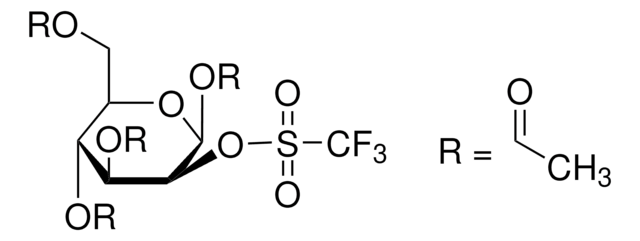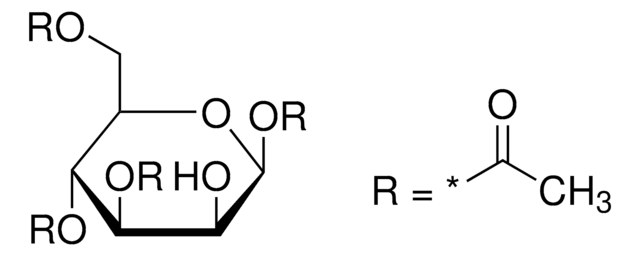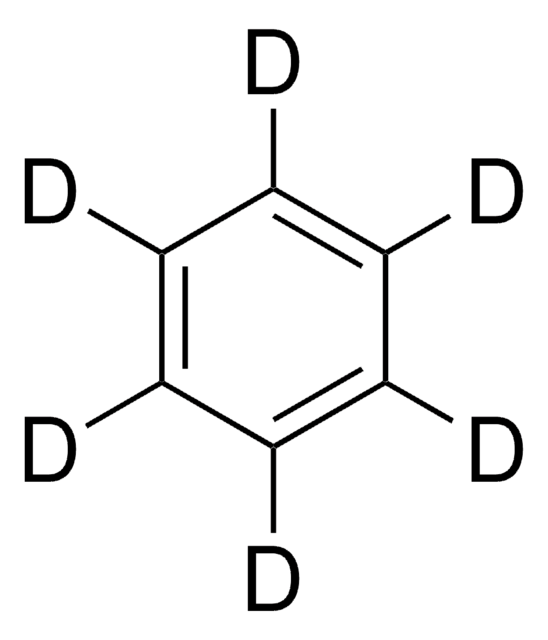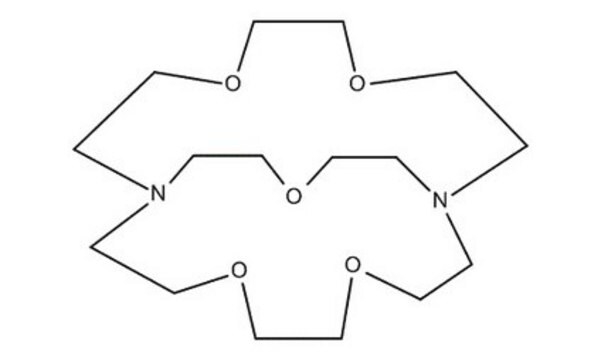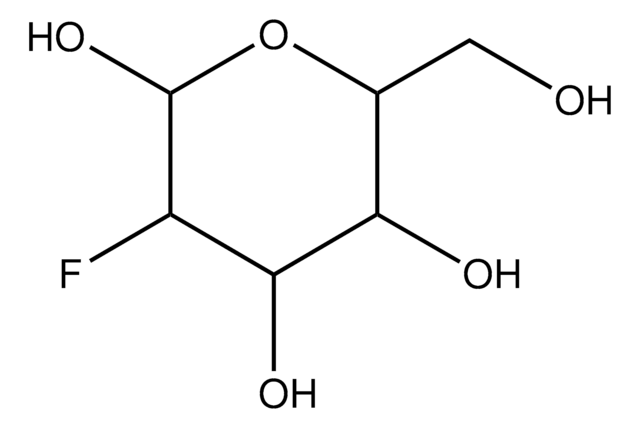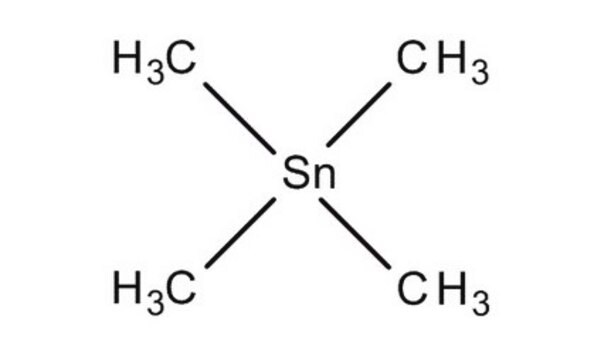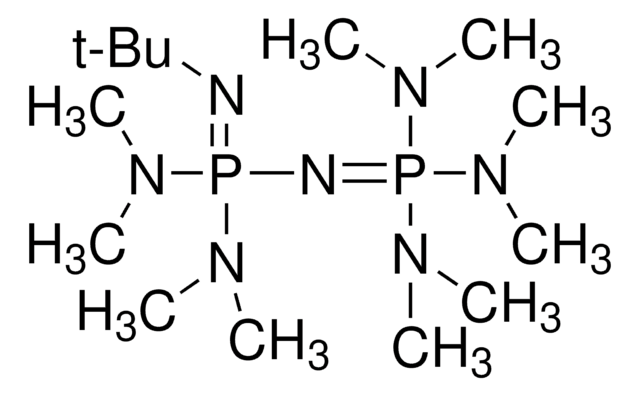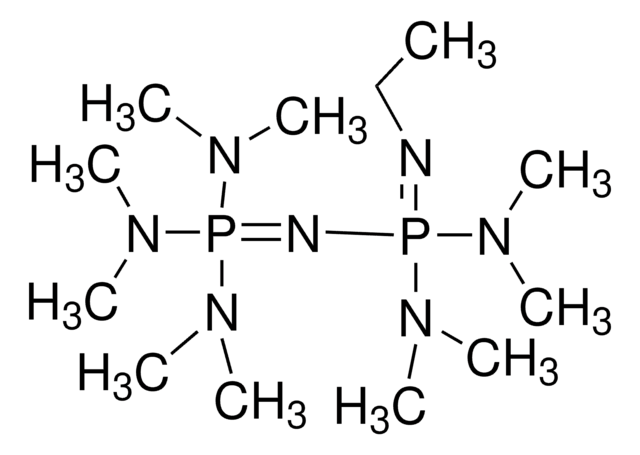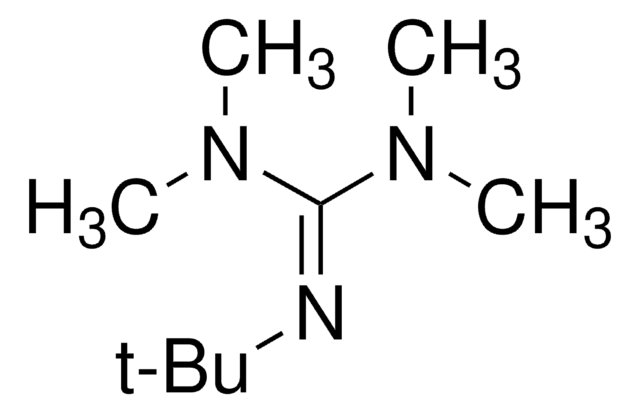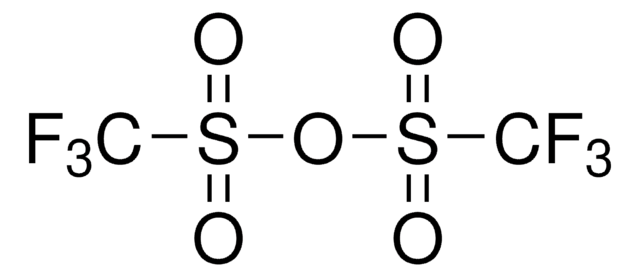M1568
Mannose triflate
For PET imaging, ≥98% (TLC)
Synonym(s):
β-D-Mannopyranose 1,3,4,6-tetra-O-acetate 2-O-trifluoromethanesulfonate, 1,3,4,6-Tetra-O-acetyl-2-O-trifluoromethanesulfonyl-β-D-mannopyranose, Mannose triflate, TATM
About This Item
Recommended Products
assay
≥98% (TLC)
technique(s)
PET imaging: suitable
shipped in
dry ice
storage temp.
−20°C
SMILES string
CC(=O)OC[C@H]1O[C@@H](OC(C)=O)[C@@H](OS(=O)(=O)C(F)(F)F)[C@@H](OC(C)=O)[C@@H]1OC(C)=O
InChI
1S/C15H19F3O12S/c1-6(19)25-5-10-11(26-7(2)20)12(27-8(3)21)13(14(29-10)28-9(4)22)30-31(23,24)15(16,17)18/h10-14H,5H2,1-4H3/t10-,11-,12+,13+,14-/m1/s1
InChI key
OIBDVHSTOUGZTJ-PEBLQZBPSA-N
Looking for similar products? Visit Product Comparison Guide
Related Categories
General description
Application
Other Notes
Storage Class
11 - Combustible Solids
wgk_germany
WGK 3
flash_point_f
Not applicable
flash_point_c
Not applicable
ppe
Eyeshields, Gloves, type N95 (US)
Certificates of Analysis (COA)
Search for Certificates of Analysis (COA) by entering the products Lot/Batch Number. Lot and Batch Numbers can be found on a product’s label following the words ‘Lot’ or ‘Batch’.
Already Own This Product?
Find documentation for the products that you have recently purchased in the Document Library.
Customers Also Viewed
Related Content
Labeled isotopes used as target materials in imaging have provided insights into the various mechanisms of human physiology and have lead to treatments for diseases. Water-18O is used for the production of 18F radionuclides, such as 18FDG (Fluoro-deoxyglucose). 18FDG used in PET and with other imaging technologies, such as CT/SPECT, has led to the diagnosis and treatment of a wide range of diseases, including lung, liver, and brain tumors, epilepsy, and Alzheimer’s.
Our team of scientists has experience in all areas of research including Life Science, Material Science, Chemical Synthesis, Chromatography, Analytical and many others.
Contact Technical Service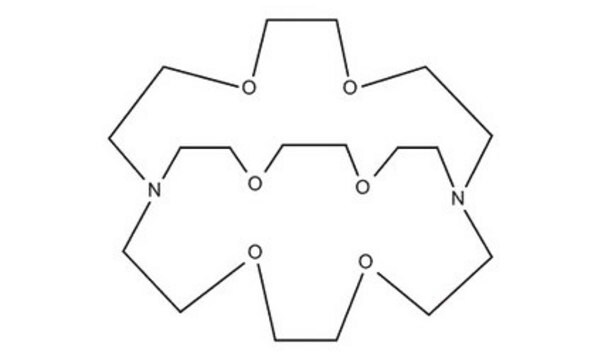
![4,7,13,16,21,24-Hexaoxa-1,10-diazabicyclo[8.8.8]hexacosane 98%](/deepweb/assets/sigmaaldrich/product/structures/189/812/8a6555e5-8de6-4236-865f-19339cee3634/640/8a6555e5-8de6-4236-865f-19339cee3634.png)
